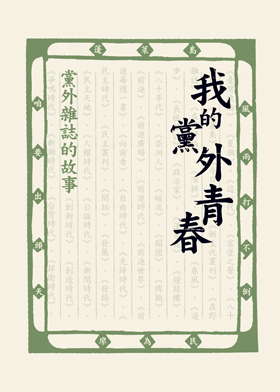Everyman's Library
“I consider in my own mind whether thou art a spirit, sometimes, or sometimes an evil imp," said the lama, smiling slowly.”
― from "Kim" by Rudyard KiplingRudyard Kipling’s Kim is the tale of an Irish orphan raised as an Indian vagabond on the rough streets of colonial Lahore. Young Kimball O’Hara’s coming of age takes place in a world of high adventure, mystic quests, and secret games of espionage played out between the Russians and the British in the mountain passages of ⋯⋯更多
British Museum
“I consider in my own mind whether thou art a spirit, sometimes, or sometimes an evil imp," said the lama, smiling slowly.”
― from "Kim" by Rudyard Kipling
― from "Kim" by Rudyard Kipling
Rudyard Kipling’s Kim is the tale of an Irish orphan raised as an Indian vagabond on the rough streets of colonial Lahore. Young Kimball O’Hara’s coming of age takes place in a world of high adventure, mystic quests, and secret games of espionage played out between the Russians and the British in the mountain passages of ⋯⋯
更多British Museum
Rudyard Kipling was born #onthisday in 1865. Here’s an illustration to his Jungle Book http://ow.ly/GbI0F
Kipling Letter Says He Borrowed ‘Promiscuously’ for ‘The Jungle Book’
By DAVE ITZKOFFWhile Rudyard Kipling spun beloved characters out of creatures like a bear, a tiger, a snake and a panther for his classic story collection “The Jungle Book,” he may have been a bit of a vulture himself and made monkey’s uncles of his readers — at least according to a letter that suggests he made use of outside sources for a portion of the work.
The Telegraph of London reported that a British company is selling a letter in which Kipling writes that “it is extremely possible that I have helped myself promiscuously” from other sources in writing “The Law of the Jungle,” an idea that he introduced in “The Jungle Book” and later codified in a poem.
The letter, written in 1895, was sent by Kipling to a recipient addressed only as “madam,” and opens with his apology for the “delay in answering yours of no date, in regard to my account of the Law of the Jungle.” The verses of that poem from “The Second Jungle Book” offer the rules and regulations for life among wolves, some of which prove to be good advice for humans, too. (“When Pack meets with Pack in the Jungle,” it reads in part, “and neither will go from the trail / Lie down till the leaders have spoken — it may be fair words shall prevail.”)
The Kipling letter says: “I am afraid that all that code in its outlines has been manufactured to meet ‘the necessities of the case’: though a little of it is bodily taken from (Southern) Esquimaux rules for the division of spoils.”
It continues: “In fact, it is extremely possible that I have helped myself promiscuously but at present cannot remember from whose stories I have stolen.” The signature reads, “Very sincerely, Rudyard Kipling.”
Andrusier Autographs, which is selling the Kipling letter for about $3,700 told The Telegraph that it had purchased the item from another dealer this month, after it was found among a larger collection of books and letters.
The Telegraph of London reported that a British company is selling a letter in which Kipling writes that “it is extremely possible that I have helped myself promiscuously” from other sources in writing “The Law of the Jungle,” an idea that he introduced in “The Jungle Book” and later codified in a poem.
The letter, written in 1895, was sent by Kipling to a recipient addressed only as “madam,” and opens with his apology for the “delay in answering yours of no date, in regard to my account of the Law of the Jungle.” The verses of that poem from “The Second Jungle Book” offer the rules and regulations for life among wolves, some of which prove to be good advice for humans, too. (“When Pack meets with Pack in the Jungle,” it reads in part, “and neither will go from the trail / Lie down till the leaders have spoken — it may be fair words shall prevail.”)
The Kipling letter says: “I am afraid that all that code in its outlines has been manufactured to meet ‘the necessities of the case’: though a little of it is bodily taken from (Southern) Esquimaux rules for the division of spoils.”
It continues: “In fact, it is extremely possible that I have helped myself promiscuously but at present cannot remember from whose stories I have stolen.” The signature reads, “Very sincerely, Rudyard Kipling.”
Andrusier Autographs, which is selling the Kipling letter for about $3,700 told The Telegraph that it had purchased the item from another dealer this month, after it was found among a larger collection of books and letters.
1960年代初台北東方書局改寫版的叢林奇譚
臺灣商務
The Jungle Books (Whole Story) by Rudyard Kipling: Viking Juvenile ...
www.abebooks.com › Rudyard Kipling - Cached
AbeBooks.com: The Jungle Books (Whole Story): Loose binding, but all pages are intact. ACCEPTABLE with noticeable wear to cover and pages. Binding intact7篇原文的插圖版 (義大利印刷). 此書台灣商務印書館有翻譯
Wikipedia的中文翻譯英文版引言論
http://en.wikipedia.org/wiki/The_Jungle_Book
The Jungle Book (1894) is a collection of stories by English Nobel laureate Rudyard Kipling. The stories were first published in magazines in 1893–94. The original publications contain illustrations, some by Rudyard's father, John Lockwood Kipling. Kipling was born in India and spent the first six years of his childhood there. After about ten years in England, he went back to India and worked there for about six-and-half years. These stories were written when Kipling lived in Vermont.[1] There is evidence that it was written for his daughter Josephine, who died in 1899 aged six, after a rare first edition of the book with a poignant handwritten note by the author to his young daughter was discovered at the National Trust's Wimpole Hall in Cambridgeshire in 2010.[2]
The tales in the book (and also those in The Second Jungle Book which followed in 1895, and which includes five further stories about Mowgli) are fables, using animals in an anthropomorphic manner to give moral lessons. The verses of The Law of the Jungle, for example, lay down rules for the safety of individuals, families and communities. Kipling put in them nearly everything he knew or "heard or dreamed about the Indian jungle."[3] Other readers have interpreted the work as allegories of the politics and society of the time.[4] The best-known of them are the three stories revolving around the adventures of an abandoned "man cub"Mowgli who is raised by wolves in the Indian jungle. The most famous of the other stories are probably "Rikki-Tikki-Tavi", the story of a heroic mongoose, and "Toomai of the Elephants", the tale of a young elephant-handler. As with much of Kipling's work, each of the stories is preceded by a piece of verse, and succeeded by another.
The Jungle Book, because of its moral tone, came to be used as a motivational book by the Cub Scouts, a junior element of the Scouting movement. This use of the book's universe was approved by Kipling after a direct petition of Robert Baden-Powell, founder of the Scouting movement, who had originally asked for the author's permission for the use of the Memory Game from Kim in his scheme to develop the morale and fitness of working-class youths in cities. Akela, the head wolf in The Jungle Book, has become a senior figure in the movement, the name being traditionally adopted by the leader of each Cub Scout pack.























 2015年 A5 110頁 1000+税
2015年 A5 110頁 1000+税












 這是國際著名紅學家和歷史學家,《五四運動史》著者周策縱教授 ( 1916年1月7日-2007年5月7日 ) 於1984年12月1日給向陽的信, 回應向陽寄奉詩集《十行集》, 對於「定型新詩體」有殷切期盼。信文如下:
這是國際著名紅學家和歷史學家,《五四運動史》著者周策縱教授 ( 1916年1月7日-2007年5月7日 ) 於1984年12月1日給向陽的信, 回應向陽寄奉詩集《十行集》, 對於「定型新詩體」有殷切期盼。信文如下: